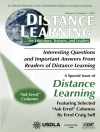Examines the use of Rasch measurement models in the social sciences. This lucid introduction first focuses on general principles, so the applications and algebra of the model can be readily understood. Andrich then connects Rasch models to common procedures for social science measurement. Avoiding polemics, Andrich′s presentation allows comparison between the Rasch models and other, better known measurement approaches. Rasch Models For Measurement concentrates on the simple logistic model, the most elementary and commonly used of the Rasch models. This excellent introduction uses one example from personality inventory throughout to provide continuity as the procedures and statistical arguments are explained. Essential reading for all researchers and students who use measurement models. ‘A valuable asset to those of us who are concerned with teaching measurement issues. . . . My only quibble is that we have had to wait so long for what is a clear, concise and very approachable introduction to a fairly complex area. . . . For its size this volume covers a lot of ground and it would seem to be an ideal book for postgraduate students with a special interest in psychometrics and professional psychologists who are concerned with measurement and assessment. . . . An ideal primer.’ –The Statistician ‘Rasch Models for Measurement is a concise introduction to the general principles, philosophy, and methods that underlie the approach to measurement developed by Georg Rasch (1960/1980). This book is a welcome addition to the Sage series on Quantitative Applications in the Social Sciences, or (as my students describe them) ‘the little green books.’ This series introduces methodological issues for individuals with limited backgrounds in statistics and mathematics, and Andrich has provided a useful resource for these individuals. . . . This book can be recommended for graduate students and colleagues who want a basic understanding of the Rasch model.’ –Applied Psychological Measurement
Daftar Isi
Magnitudes and Quantities — Differences in Degree
Fundamental Measurement
The Simple Logistic Model
The General Form of the SLM and the Guttman and Thurstone Principles for Scaling
Estimation
Test of Fit
Accord Between the Model and the Data
Tentang Penulis
He obtained a bachelor degree in Mathematics and his Masters degree in Education from The University of Western Australia and his Ph D from the University of Chicago, for which he was awarded the Susan Colver Rosenberger prize for the best research thesis in the Division of the Social Sciences. He returned to The University of Western Australia, and in 1985 was appointed Professor of Education at Murdoch University, also in Western Australia. In 2007 he returned to The University of Western Australia as the Chapple Professor of Education. In 1977 he spent 6 months as a Research Fellow at the Danish Institute for Educational Research working with Georg Rasch and he has been a Visiting Professor at the University of Trento in Italy for two periods. He has held major research grants from the Australian Research Council continuously since 1985 and has conducted commissioned government research at both the national and state levels. In 1990, he was elected Fellow of the Academy of Social Sciences of Australia for his contributions to measurement in the social sciences. He is especially known for his work in modern test theory, and in particular Rasch models for measurement, ranging in topics from the philosophy of measurement, through model exposition and interpretation, to software development. He has published in Educational, Psychological, Sociological and Statistical journals. He is the author of Rasch Models for Measurement (Sage) and coauthor of the software package Rasch Unidimensional Measurement Models (RUMMLab).David Andrich’s current research in applying Rasch models for measurement is has two strands. The first involves articulating a research and assessment paradigm that is different from the traditional in which statistical models are applied. In the traditional paradigm, the case for choosing any model to summarise data is that it fits the data at hand; in contrast, in applying the paradigm of Rasch models, the case for these models is that if the data fit the model, then, within a frame of reference, they provide invariance of comparisons of persons with respect to items, and vice versa. Then any misfit between the data and the chosen Rasch model is seen as an anomaly that needs to be explained by qualitatively by reference to the theory behind the construction of the instrument, and the operational aspects of its application. He argues that this approach improves the quality of social measurement, including in education, psychology, sociology, economics and in health outcomes. The second area of research is further articulating the implications of the Rasch models and development of complementary software, to better understand a range of anomalies, for example, how to identify guessing in multiple choice items, how to identify and handle response dependence between items, and mutldimensionality. He has also recently published the paper which shows how person location estimates can be obtained independently of all test parameters using the general unidimensional Rasch model in the case where each person has sat a multiple of tests, for example for selection for university entry. Andrich, D. (2010) Sufficiency and conditional estimation of person parameters in the polytomous Rasch model. Psychometrika. (Online First Publication).












